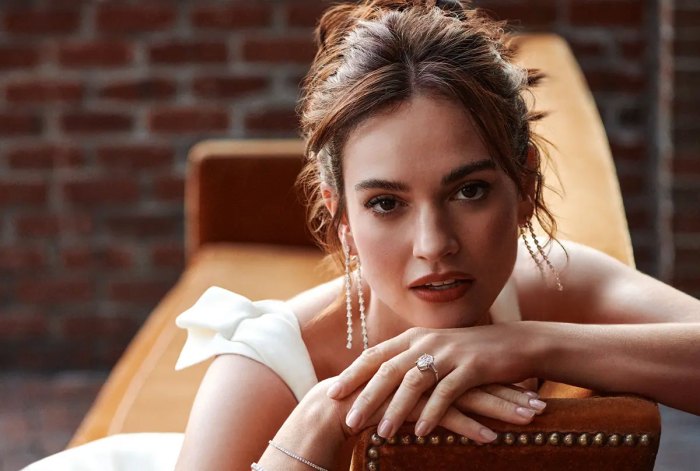Romantic and Historic: The Story of Princess Beatrice’s Diamond Wedding Tiara
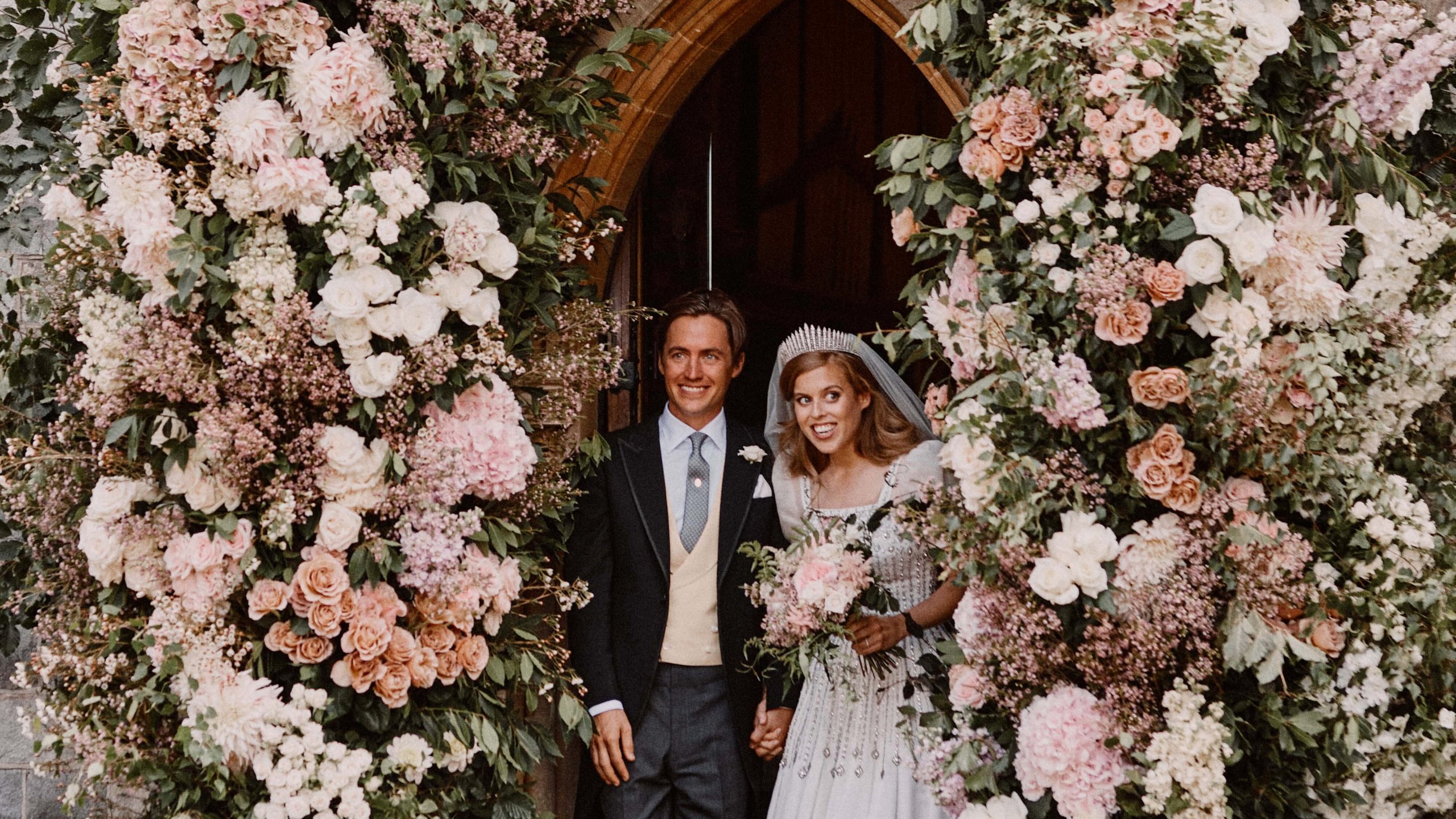
By British royal wedding standards, Princess Beatrice and Edoardo Mapelli Mozzi’s nuptials on Friday, July 17, 2020 were a low-key affair. The private event, held at the Royal Chapel of All Saints at Royal Lodge in Windsor, was only attended by a handful of close family members. What the event lacked in high-profile pomp and circumstance, however, it made up for with one amazing diamond tiara. Well, perhaps that is a bit of an overstatement, but the 100-year old jewel, known formally as Queen Mary’s Fringe Tiara, was a real crowd pleaser. And it has a wonderful backstory.
Queen Elizabeth II wore the same tiara for her royal wedding to Prince Phillip held at Westminster Abbey in London on November 20, 1947. The piece gained a bit of notoriety at the time, because it almost caused the bride to be late to the wedding.
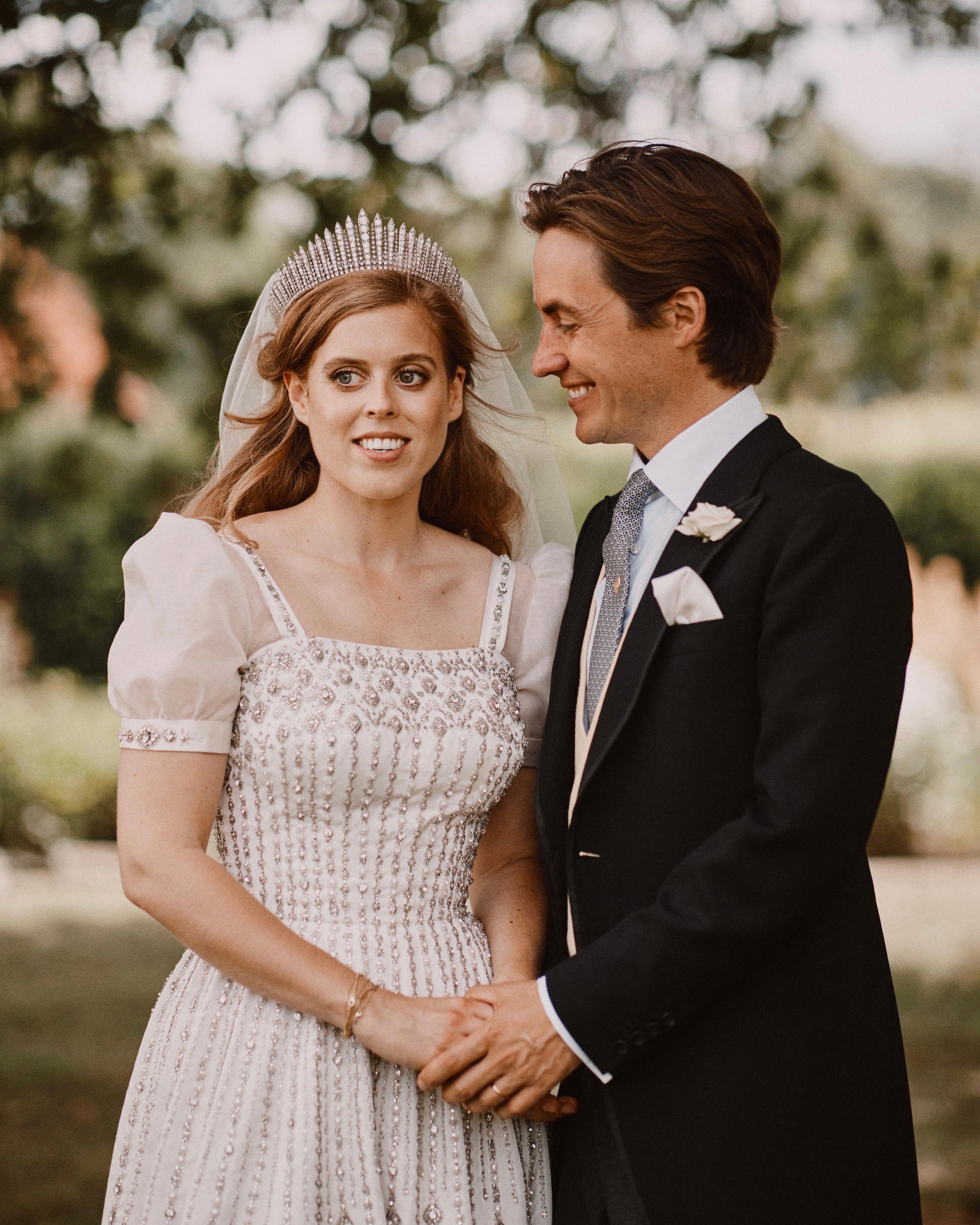
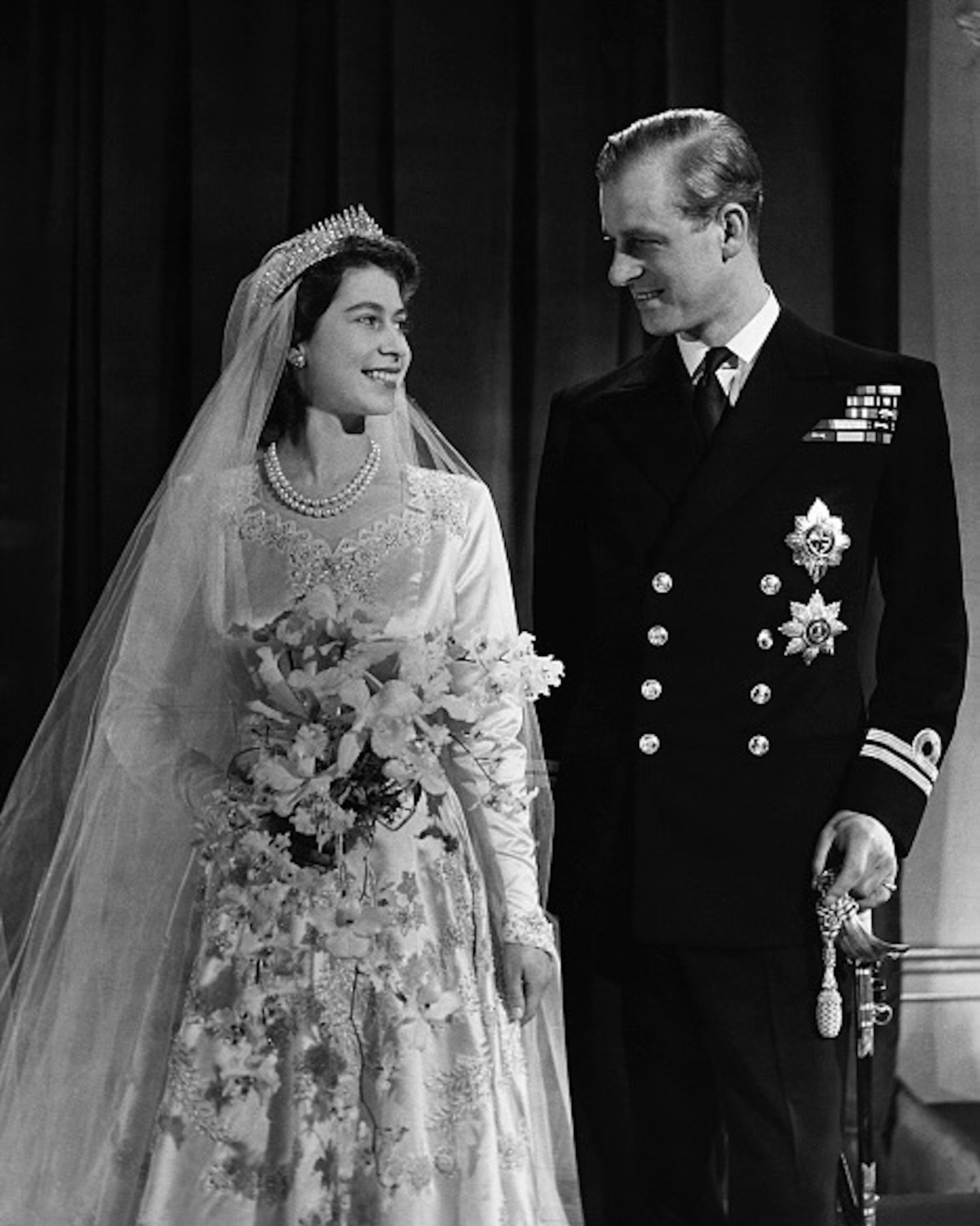
As the then Princess Elizabeth was getting ready with her dresser at Buckingham Palace, the jewel which can also be worn as a necklace, was being fitted on its tiara frame and a part popped off in the process. When the jewelry mishap occurred the staff and security whipped into action. The court jeweler in attendance received a police escort back to the workroom to quickly repair it and then rapidly return it to the princess. Remarkably, Elizabeth made it to the church on time with the jewel in place.
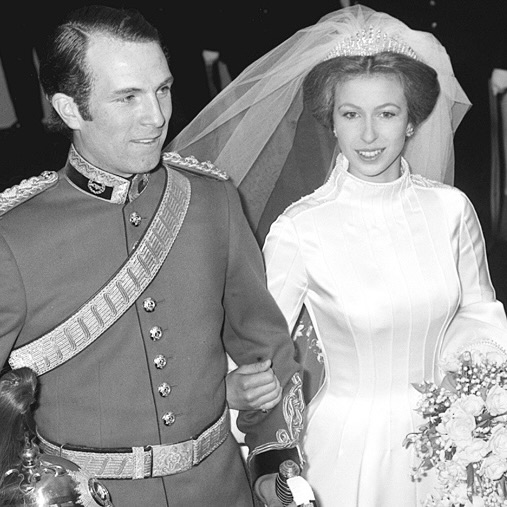
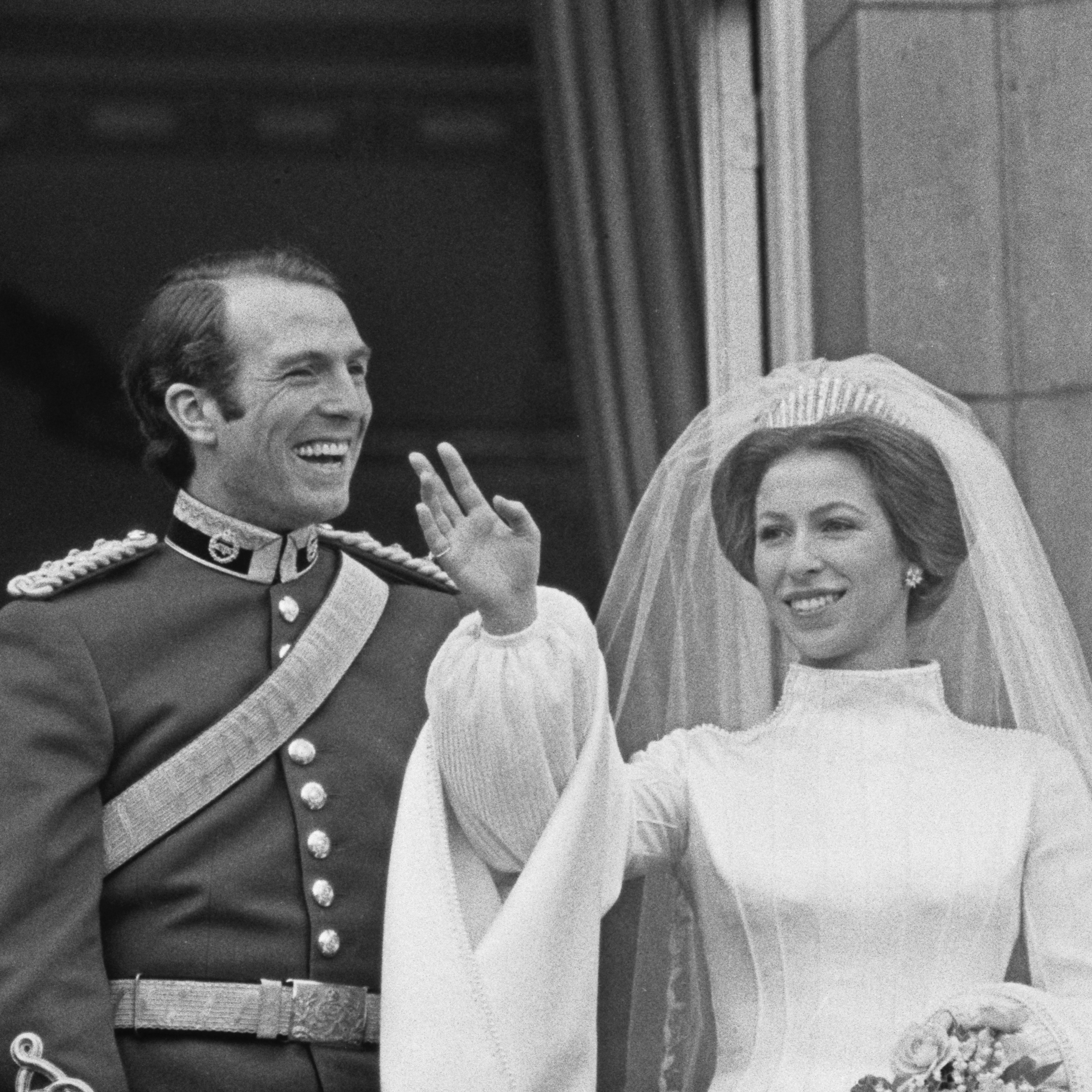
When Queen Elizabeth’s daughter, Princess Anne, married Mark Phillips in 1973 she wore Queen Mary’s Fringe Tiara with her Tudor style wedding gown. There were no mishaps when she sported the jewel. It simply looked magnificent with her ensemble.
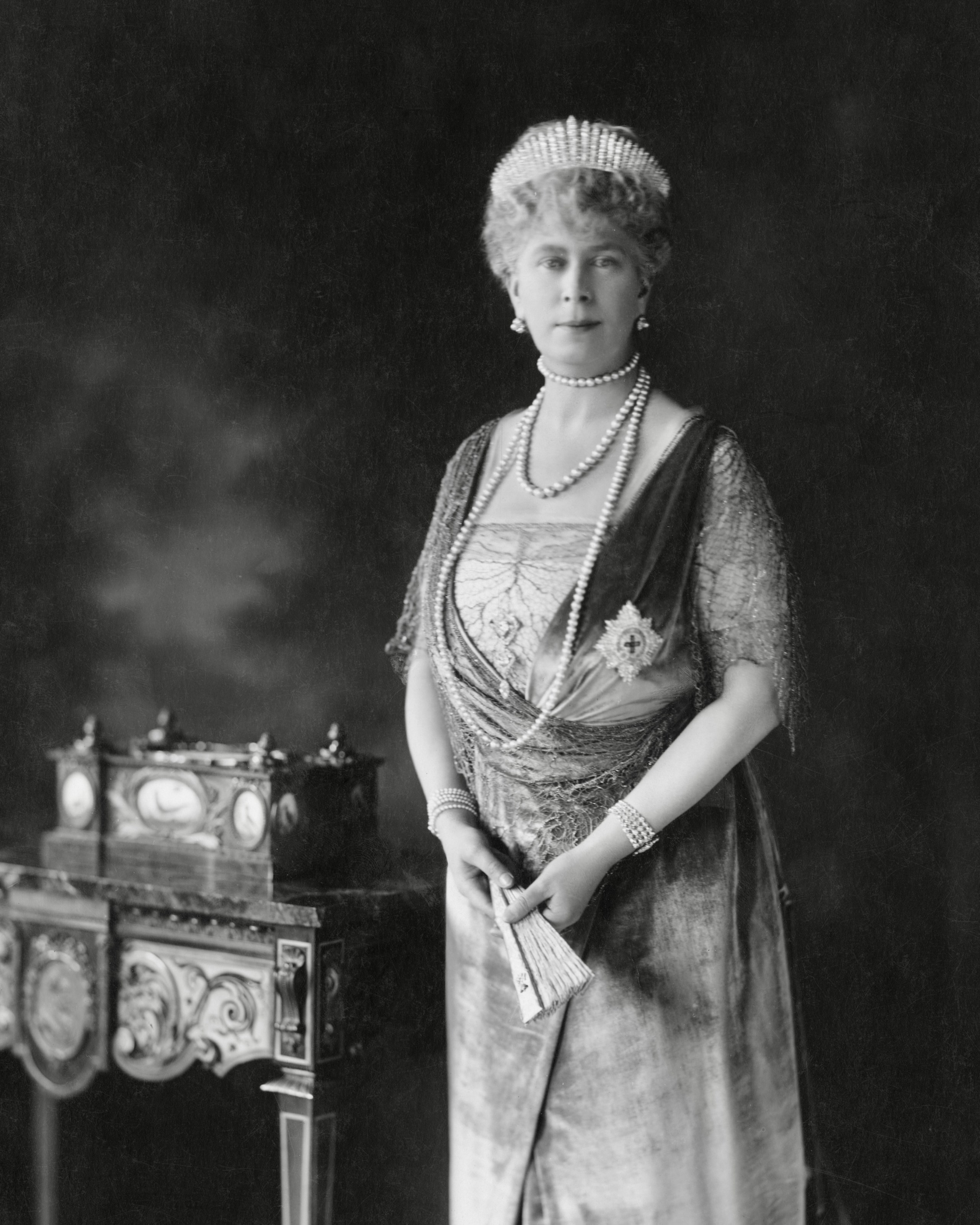
The original owner of the Fringe Tiara was Queen Mary, wife of King George V who reigned Britain from 1910 until 1936. Mary commissioned the design from the British Crown Jeweler Garrard in 1919. The gems used in the jewel were removed from a necklace-tiara Mary received from Queen Victoria as a wedding present in 1893. According to the Jewellery and Watch Director of British Vogue, Rachel Garrahan, “These diamonds stretch back even further in royal history, since they were originally owned by George III and his wife Queen Charlotte, which is why it [Mary’s Fringe Tiara] is also sometimes referred to as the King George III Fringe or the Hanoverian Fringe tiara.”
Like so many royals, Queen Mary was known for reworking jewels when she wanted to update her look. The fringe style was wildly popular in the early years of the twentieth century. It was loosely inspired by the halo shaped silhouette of a Russian kokoshnik headdress. Sometimes the fringe style is referred to as a kokoshnik tiara. Generally speaking, the design is more graphic and modern in appearance than the mode of scrolls, ribbons, swags, leaves and florets found on most tiaras in the British royal family’s collections.
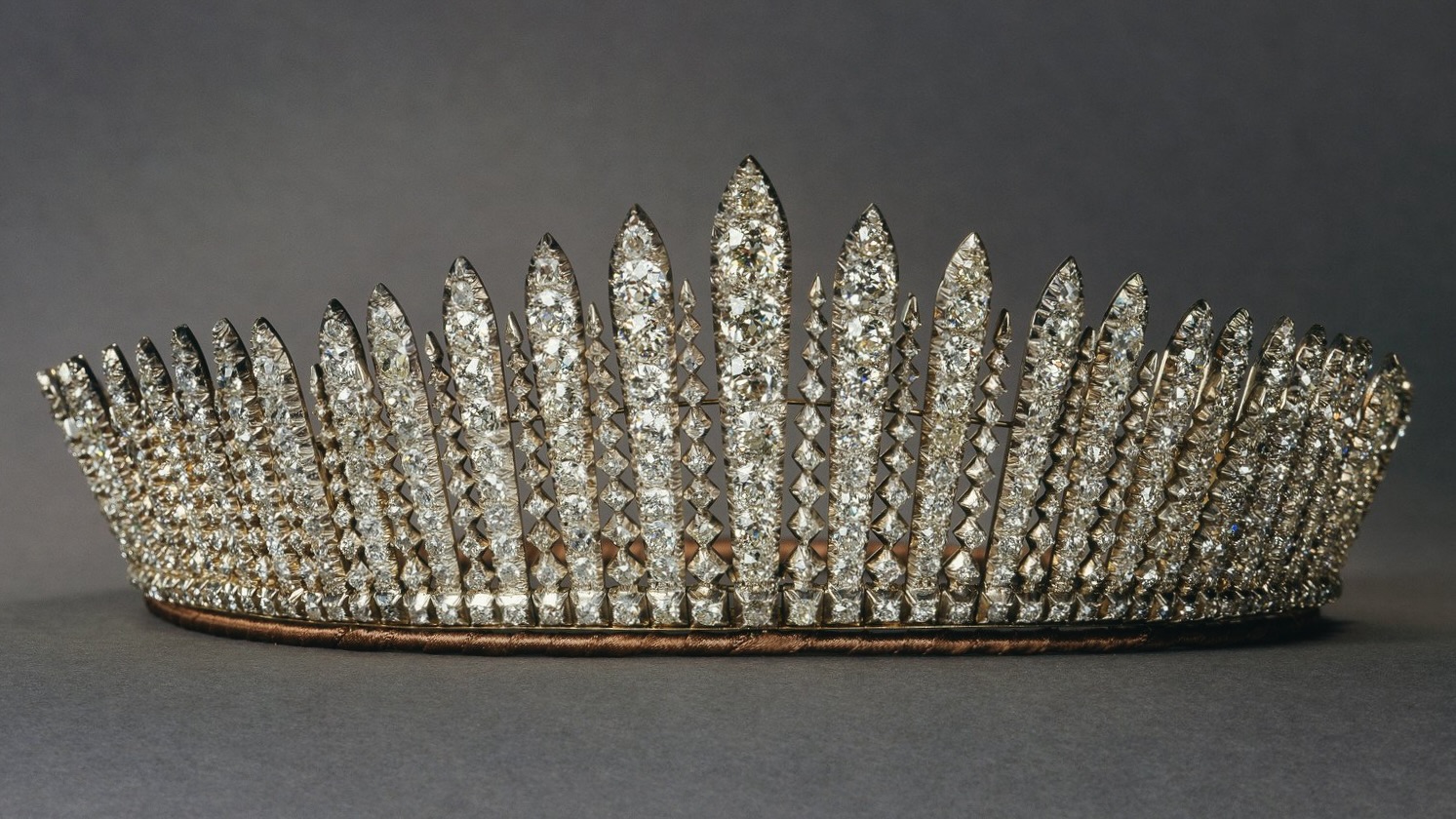
According to Sir Hugh Roberts, the Surveyor Emeritus of The Queen’s Works of Art and author of The Queen’s Diamonds, the jewel features 47 graduated tapering bars set with brilliant and rose-cut diamonds and 46 narrow spikes with nine graduated brilliant cut diamonds. The diamonds in tiara are set in silver topped gold. It measures approximately 2.5 inches by 7.4 inches.
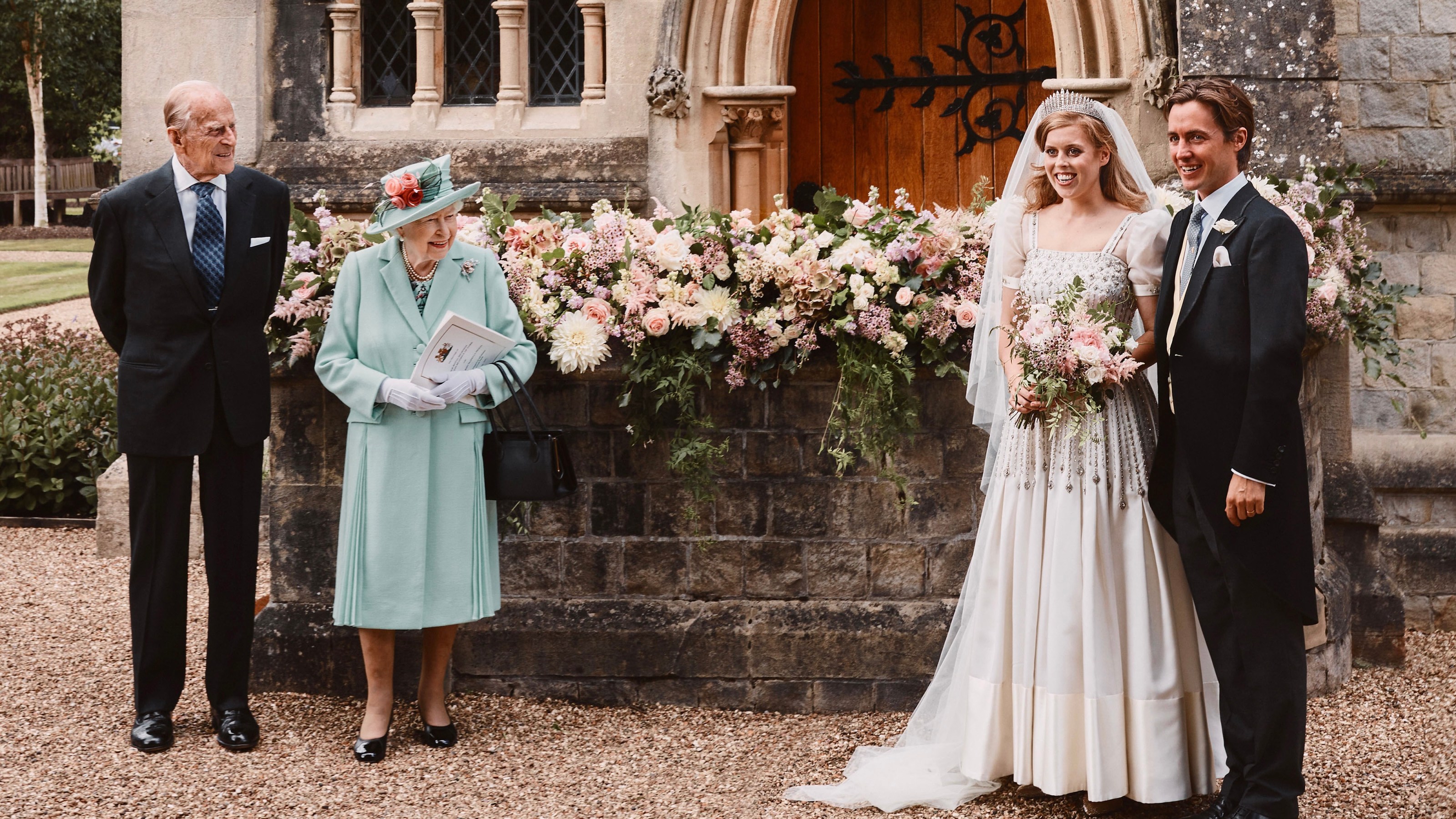
It was pure jewelry joy to see Queen Mary’s Fringe Tiara being worn once again to a royal wedding. Princess Beatrice paid further loving tribute to her grandmother, Queen Elizabeth, by pairing the piece with the Norman Hartnell gown the monarch wore for the April 1966 opening of Parliament. Three-quarter length puff sleeves were added to the ivory taffeta and duchess satin gown with a diamante pattern on the bodice as a slight alteration for the wedding. The full look with the Fringe Tiara was like a modern fairy tale.
